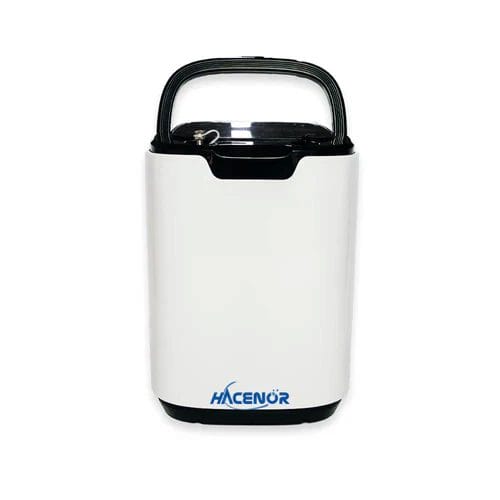
Adults aging in their neighborhoods can find many resources and support systems within their town or city designed just for older adults. For example, many towns feature a senior service division, and recreation departments often have a special events calendar for adults over 55. Another common resource is senior centers, a community hub that provides socialization, education, and more for older adults. Here’s why you should look into your local senior center to find support and recreational opportunities for yourself or your loved one.
What are senior centers?
According to the National Council on Aging, senior centers are community focal points designed to provide services and resources to older adults. It is estimated that more than 11,000 senior centers nationwide serve more than 1 million older adults daily. These centers are valuable resources that provide local older adults with educational, entertainment, and socialization opportunities and connect seniors with other helpful resources in their communities.
Senior centers aim to provide events and resources that support seniors as they work to meet their health and wellness goals. You’ll find seniors who live at home without support, seniors who need some in-home support from caregivers, seniors who live with an adult child, and even seniors who live in independent living communities — all seniors are welcome at the senior center.
Senior centers are typically open five to six days per week, with hours fluctuating based on the needs of their community. Business hours are common, but you might also find a senior center that stays open later a few evenings a week to serve their patrons.
Where can I find a senior center near me?
A simple internet search should provide you with the nearest senior center. Also, senior centers often work closely with community organizations, so contact your town’s senior services or recreation department for information about senior centers. Some senior centers partner with hospitals, so check there, too.
What happens in senior centers?
Perhaps the best part of senior centers is that they offer programming, support, and resources tailored to the needs of the participants and community. For example, what you see happening in a neighborhood senior center in Chicago might be different from a senior center’s programming in a rural town in Alabama. This customized approach ensures the seniors who visit the center get exactly what they need when they need it.
While each senior center offers unique programs, you can find similar offerings in most centers throughout the country. Each resource and event is designed to enhance quality of life and empower seniors to remain as independent as possible. Below are some examples of the kinds of programs senior centers commonly offer.
Socialization events
Connecting with peers is a foundational component of wellness for older adults, but it can be difficult to find new friends. Senior centers are vibrant, social community hubs offering programs and events designed for healthy socialization. You might find happy hours, entertainer performances, or other special events to encourage conversation. These events provide fun opportunities for meeting new people with common interests or connecting with old friends.
Health and wellness screenings
Your community senior center is a place where you can take advantage of health and wellness resources. You might find bone density screenings, vision and dental clinics, wellness fairs, and presentations given by local health experts on the calendar at a senior center. Most of these events will be free or at a reduced cost.
Fitness classes
Staying active as you age is important for maintaining your health and well-being. Many senior centers offer free or low-cost fitness classes to support seniors’ physical health. You might find balance classes, chair yoga, tai chi, and other classes designed specifically for seniors. For example, the Senior Center of West Seattle offers several different types of fitness classes per week, so older adults can find something they enjoy that suits their mobility level.
Financial assistance
Do you have questions about Medicare choices, or are you wondering if you might meet the qualifications to get reduced electric bills? Your local senior center likely has the information you need. Many senior centers even invite experts to give presentations or host free clinics where you can bring your information and receive personalized advice. They also often offer assistance with tax preparation, such as at the Community for Positive Aging in Portland, Oregon. They provide free sessions to help older adults with tax preparation and to answer tax-related questions.
Community meals
While home-delivered meals through organizations such as Meals on Wheels are an excellent resource for many older adults, enjoying a meal with others also has benefits. Many senior centers are community meal sites where seniors can gather for a free or reduced-cost meal catered by a local restaurant or organization. Seniors can get together to meet others in their community while receiving nutritious meals that support their well-being.
Community connections
Senior centers are connected to all the resources in the surrounding area. They can bring in local experts to give educational lectures, lead art workshops, or facilitate fitness classes. In addition, they can connect patrons to other community resources, such as vetted handyman services, senior-experienced moving services, and more.
Costs associated with senior centers
Depending on the senior center, you might expect to pay a yearly or monthly membership fee to access all events and resources. This is typically offset through grants or other government funding, but the membership payments help to ensure excellent programming and events.
If your senior center doesn’t have a membership option or if you just want to attend an event or two every once in a while, you might pay a nominal fee for each one. An event that includes dinner and entertainment, for example, will cost more than an event that doesn’t feature food. You might also pay for special trips, such as excursions to the new museum in town or to catch a classic film at the theater with the group.
Exploring your senior center
When you’re ready to learn more about your senior center, get on their mailing list to receive their newsletter and monthly calendar. This way, you can see upcoming events that interest you. Contact them to schedule transportation assistance if you need a ride to and from the center. Many senior centers work with the city’s senior transportation division and can give you a scheduled ride at a low cost.
Contact your local senior center with any questions. You’ll find that the staff is helpful on the phone and even more welcoming in person. Enjoy the friendships and opportunities that come with regular visits to the senior center.








